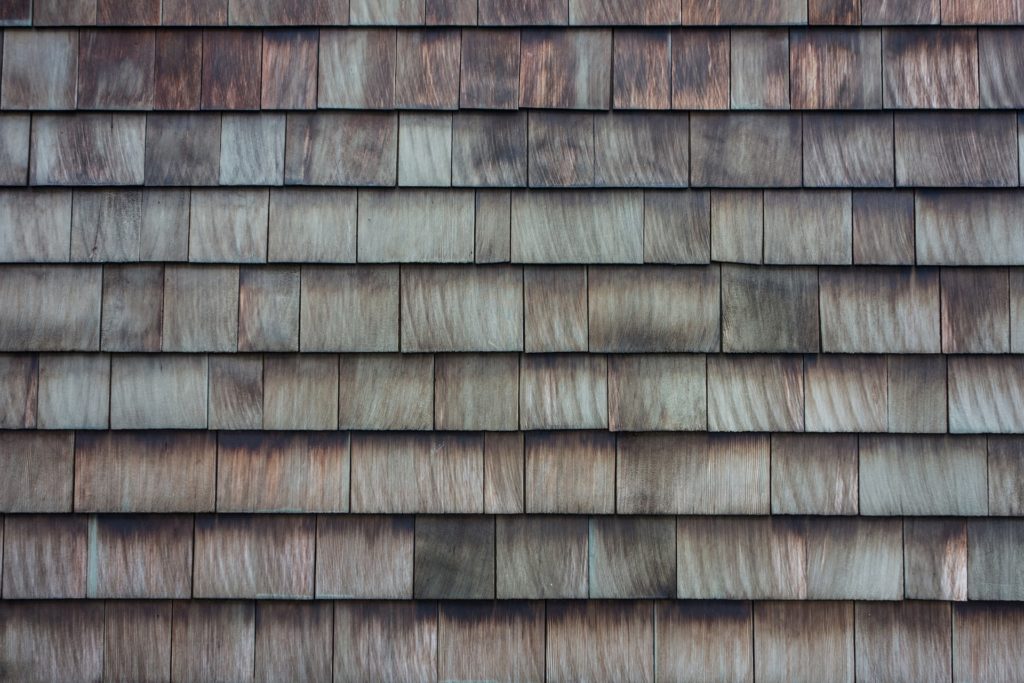Throughout the world there are a myriad of different types of shingles designed for various roofing systems. Depending on local materials and costs, these materials can either be unique to specific areas or highly generic. These generic roof shingles are common throughout the world, and more specifically, to the United States. The usage of different types of roof shingles is highly dependent on the type of structure and shape and pitch of the roof. Commercial buildings and flat roof residential properties often do not use shingles, but rather an overlayment made of rubber or spreadable asphalt. On the other hand, residential properties use different types of shingles.
As you drive through various neighborhoods in the greater Boston area, you will find a multitude of different shingles. Most commonly these are either asphalt, slate, wood, or metal. There are pros and cons to all of these different materials. Follow along as we explore these unique types of roof shingles, and what they can provide your home.
Asphalt Shingles
The most common residential roofing material is undoubtedly asphalt within this country. This type of shingle offers the best trade-off between price, longevity, and durability. These shingles begin as a mat that is then coated with hot asphalt. Before the asphalt dries, granules, most commonly made of ceramic, are laid into it. These granules help protect the shingle from sun, while adding structural integrity. At the same time, granules are responsible for the different colors of the shingles. Asphalt shingles are relatively durable, and cost substantially less than their slate counterparts.
On average, asphalt shingles have a lifespan of 15-25 years. This broad range depends on multiple factors including: sun and weather exposure, proper yearly maintenance, quality of installation. As previously stated, asphalt shingles offer a strong blend of durability and price as compared to other types of shingles.
Slate Roof Shingles
Unlike asphalt, slate shingles are commonly created from natural resources. Natural slate shingles are mined from raw material and cut to a uniform size. While asphalt shingles come in strips, slate roof shingles are attached one at a time. Owing to the creation and installation process, slate is substantially more expensive than asphalt. Also, due to their natural hardness, slate shingles are much more durable than asphalt. Slate is often said to outlive most homeowners, with the average slate roof lifespan between 50-100+ years.
This type of shingle is much less susceptible to sun and weather erosion. They require much less yearly maintenance to ensure a proper roof lifespan. This is not to say homeowners should not take care of their slate roofing systems. These tiles on your roof should be cleaned regularly to ensure the proper aesthetic. While watershed is adequate, slate is still susceptible to mold and algae growth. This growth can be treated easier than asphalt shingles. Unlike asphalt, it is difficult to replicate the unique beauty of slate style roofing systems. For aging, historic homes, slate is the most common type of shingle chosen to maintain the aesthetic of the home.
Metal Roofing Systems
While not an actual type of shingle, metal roofing is laid in large sheets in the direction of the proper watershed. Metal is similar to slate in that it is more costly than asphalt but also more durable. Metal roofs last between 40-70 years which falls perfectly in between the other two types of shingles. Like slate, metal roofs require less annual cleaning and maintenance than asphalt. The downside to metal is some homeowners find it to be very noisy. Owed to its structure, rain, debris, sleet, and hail are quite noisy on these roofs. Also, unlike slate, metal roofs can be dented from debris and larger storms, which negatively impacts its aesthetic. Here, unlike asphalt, this damage does not necessarily impact the effectiveness of the overall system.
Wooden Roof Shingles
For the traditionalist, wood shingles are a good choice. Throughout most of the country, this type of shingle is a dying art. Due to the rise in technology, asphalt shingles can offer a similar look while being more durable and less expensive. Wooden roofs last an average of 30 years with strong maintenance habits. These shingles, or shakes, require more maintenance than asphalt. Wooden shakes should be stained or painted every few years to ensure healthy shingles. Similarly, algae and mold can destroy wood, therefore, proper cleaning is paramount. At the end of their lifespan, wooden shingles are most susceptible to leaks compared to other materials.
All in all, wooden shingles offer a unique aesthetic than cannot be truly captured by any other material. For the active and involved homeowner, the necessary maintenance shouldn’t be a deterrent and can be added to your seasonal cleaning routines.
There are different types of roofing shingles that offer a variety of tradeoffs between the options. Ranch Roofing specializes in the installation and repair of both asphalt and slate shingles in the greater Boston area. Our sales team are experts in both of these styles, and can walk you through the pros and cons for your home’s unique needs.

